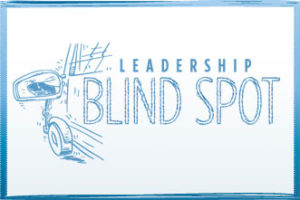By Rose O. Sherman, EdD, RN, NEA-BC, FAAN
 Last week, I went to training to become certified as a DiSC facilitator. Some of you may be familiar with this instrument. It is a personal assessment tool that looks at your work and relationship behaviors and can be used to improve work productively, enhance your skill as a team member and your communication. It is non-judgemental about behavioral differences but does help you to uncover your blind spots in leadership.
Last week, I went to training to become certified as a DiSC facilitator. Some of you may be familiar with this instrument. It is a personal assessment tool that looks at your work and relationship behaviors and can be used to improve work productively, enhance your skill as a team member and your communication. It is non-judgemental about behavioral differences but does help you to uncover your blind spots in leadership.
As part of the training, we took the instrument ourselves and I like others were amazed how it pretty accurately reflected a lot of my behaviors – both good and bad. Assessments like DiSC can be very helpful in uncovering your own blind spots in your leadership. The author John Maxwell has defined blind spots as “an area in the lives of people in which they continually do not see themselves or their situation realistically.” All of us have them and if they are serious enough, they can derail our leadership. Three key areas of leadership blind spots that seem to appear in many studies include under-communicating strategic direction and priorities, poorly communicating expectations, and waiting for poor performance to improve to avoid conflict.
There are no magic bullets to uncovering and working through your blind spots but here are some suggestions from leadership experts:
- When you receive information from a 360 degree assessment or findings from an instrument like DiSC – use it to develop a personal leadership action plan. Don’t justify areas of weakness by making statements like that is just who I am.
- Find a peer-coach – many leadership programs include a requirement that participants have a neutral leader observer in the organization to give the leader feedback about their behavior in conversations and meetings.
- Avoid hiring people just like you – diversity is important on teams and can help leaders to quickly identify their own biases if they are willing to listen with the idea that they could be wrong.
- Consider your own performance reviews – what do you need to continue doing, do more of, do less of and stop doing.
- Work on your relationship skills because for most leaders – this is where their biggest blind spots are. Talk less and listen more.
- Think about feedback that you have received perhaps in jest about our physiological behaviors such as talking too fast for others to keep up with you or maintaining no eye contact during conversations.
- Be willing to ask tough questions and able to accept unpleasant feedback – people will tell you the unvarnished truth if they know they will not be punished.
Remember if you don’t work to uncover your blind spots, you won’t work on them. You may be a smart, talented leader that has some subtle behaviors or attitudes that hold you back and lead you to be negatively viewed by your colleagues. To move further in your career, open yourself up to the feedback and be willing to change.
emergingrnleader.com 2016


 LinkedIn
LinkedIn Instagram
Instagram